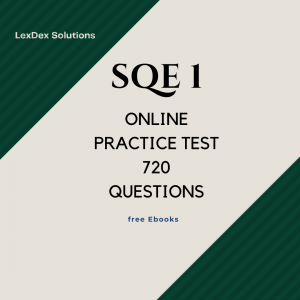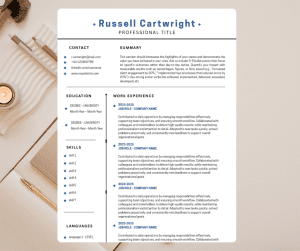SQE1 Questions demand more than memorising black-letter law; preparing for the Solicitors Qualifying Exam (SQE1) requires sharp analysis, strategic thinking, and the ability to apply legal principles to complex scenarios.
The multiple-choice format of SQE1 Questions is designed not only to test knowledge but also to challenge reasoning, precision, and exam technique. Many candidates find themselves tripped up by distractors — options that look convincing but are subtly wrong. To succeed, you need a strategic approach that allows you to identify traps, manage time, and apply legal principles systematically. This article outlines proven strategies to avoid the most common pitfalls and approach SQE1 multiple-choice questions with confidence.
1. Understand the Nature of SQE1 Questions
SQE1 questions are not simple fact-recall items; they are scenario-based, meaning each is rooted in a short but detailed legal narrative. Candidates must first identify the legal issue, then apply the relevant law accurately to the given facts. The scenarios are deliberately written to include red herrings, which test whether you can distinguish between relevant and irrelevant facts. This format reflects real legal practice, where solicitors must sift through information and focus only on what matters legally. Recognising this design helps candidates approach each question with the right mindset: treat it as a client problem, not a trivia quiz.
2. Spotting Common Trap Techniques
The examiners often use subtle tricks to mislead, and being aware of them reduces the risk of error. One common trap is the inclusion of an answer that states the law correctly but applies it to the wrong context. Another is the use of extreme wording, such as “always” or “never,” which rarely reflects the nuanced reality of law. Distractors may also exploit common student misconceptions, such as confusing leases with licences or mistaking co-ownership principles. By practising with these patterns in mind, you train yourself to pause before selecting what “looks right” and instead verify it against the facts and law.
3. Time Management as a Defensive Strategy
Poor time allocation is one of the most common reasons candidates fall into traps. Spending too long on one complex question increases anxiety and reduces accuracy later in the exam. A disciplined approach is to allocate a strict average time per question and move on if you are stuck, returning later if time permits. This prevents the temptation to overthink — which is often when candidates talk themselves into the wrong answer. Consistent time awareness in SQE1 Questions ensures that traps designed to consume your focus do not undermine your overall performance.
Practice SQE1 Questions in Exam Timed Conditions
SQE1 Questions -40% off
4. Eliminate Wrong Answers Systematically
Instead of trying to find the “perfect” answer immediately, many candidates benefit from working backwards. Begin by eliminating options that are clearly wrong, either factually inconsistent with the scenario or legally inaccurate. This narrows the field, increasing the probability of selecting the right option even if you are unsure. Importantly, elimination requires discipline: do not dismiss an answer unless you can articulate why it is wrong in law or in fact. By practising this structured elimination technique, you build exam resilience and reduce the likelihood of being misled by attractive but incorrect options.
5. Build Exam Technique Through Targeted Practice
Ultimately, avoiding traps comes down to preparation and repetition. Regular exposure to high-quality, scenario-based practice questions develops both legal knowledge and the critical thinking skills needed to avoid common pitfalls. Candidates should aim to practise under timed conditions, as this mirrors the real exam environment. Reviewing not only the correct answers but also the rationale behind incorrect options provides invaluable insight into the examiners’ tactics. This type of targeted practice transforms traps from threats into opportunities to showcase exam technique.
Passing the SQE1 requires more than knowing the law; it requires mastering the art of answering multiple-choice questions under pressure. By understanding how questions are structured, spotting trap techniques, managing time, and using systematic elimination, you give yourself a clear strategic advantage. Pairing these methods with consistent, scenario-based practice ensures you are not caught out by distractors but instead use them to strengthen your reasoning. The goal is not just to survive SQE1 but to demonstrate the analytical precision expected of a solicitor. With the right strategy, the traps become stepping stones toward success.
FAQ: SQE1 Questions Multiple Choice Strategy
1. Why are SQE1 multiple-choice questions so difficult?
SQE1 multiple-choice questions are designed to test more than surface-level knowledge. Each scenario includes red herrings — facts that appear relevant but have no legal consequence — and distractors that mimic common mistakes. This makes them more complex than simple recall questions. Candidates must combine legal knowledge with analytical skills to filter the facts properly. The difficulty is intentional, as it reflects the type of judgment expected of practising solicitors.
2. How can I avoid being misled by distractors in SQE1 Questions?
The best way to avoid distractors is to develop a habit of elimination and legal verification. Instead of immediately choosing the “most likely” answer, cross-check whether the option applies to the precise facts. Many wrong answers state the law correctly but in the wrong context. By practising with these patterns, you learn to pause and verify before selecting. This structured method reduces the risk of being caught out by convincing but incorrect options.
3. What role does time management play in SQE1 Questions success?
Time management is a protective tool against traps. When candidates spend too long on one difficult question, they often overthink and talk themselves into errors. Sticking to a strict time allocation per question ensures even coverage of the exam paper. Returning later to flagged questions keeps momentum steady and anxiety lower. This disciplined pacing helps avoid careless mistakes born of fatigue or panic.
4. Should I guess if I cannot find the right answer?
Yes, leaving a question blank is worse than making an informed guess. The elimination process usually allows you to discard at least one or two options, increasing your odds of selecting correctly. Even if uncertain, an educated guess is statistically more beneficial than skipping. Flag the question, answer it provisionally, and review it later if time remains. This strategy ensures no opportunity for marks is wasted.
5. How can practice improve my SQE1 multiple-choice technique?
Targeted practice is the most effective way to strengthen multiple-choice strategy. High-quality scenario-based questions mirror the style of the real exam and train you to recognise traps quickly. Reviewing answers thoroughly — both correct and incorrect — builds insight into examiner tactics. Timed practice replicates exam conditions, enhancing your ability to manage pressure. Over time, practice transforms tricky questions into familiar patterns you can solve confidently.
Take Your SQE1 Prep Further
Mastering multiple-choice strategy is only half the battle — the key to real confidence in SQE1 Questions is consistent, high-quality practice. At LexDex, we provide expertly written SQE1 Qiestions training materials that mirror the style, difficulty, and subtle traps of the real exam. Each question is designed not only to test your knowledge but also to sharpen your exam technique, helping you recognise patterns and avoid common pitfalls. With scenario-based practice questions, detailed explanations, and structured study resources, you’ll build the skills to approach every multiple-choice with clarity and confidence. Explore our SQE1 products today and give yourself the advantage you need to succeed.
Looking Beyond the Exam?
Passing SQE1 is only the beginning of your journey to qualification. Once you’re ready to step into the professional world, a strong CV is just as important as exam success. Our partner platform, Lawlio, specialises in expertly designed CV templates tailored for law graduates and aspiring solicitors. With a polished, professional CV, you can showcase your achievements and stand out to UK employers.

